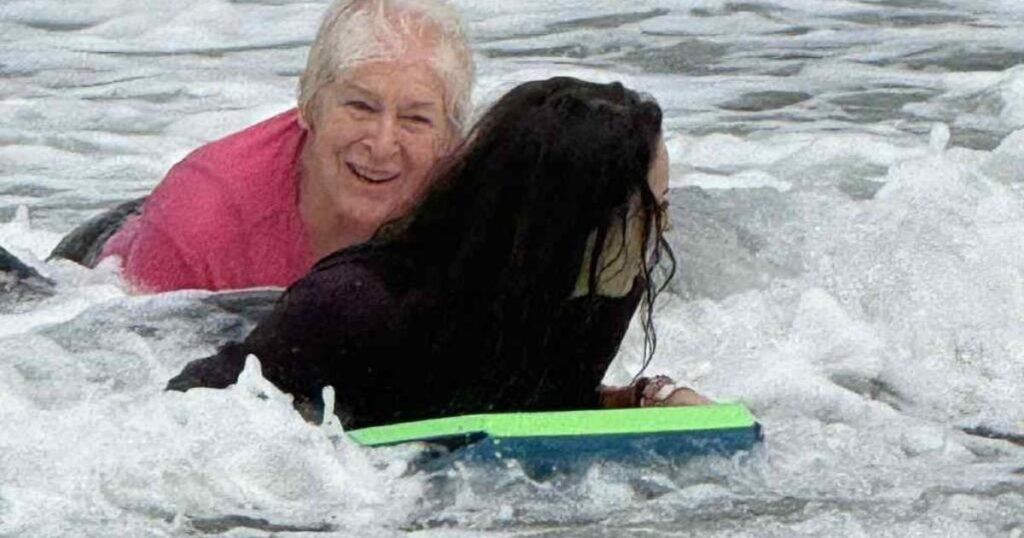Linda Pearcy, 74, who was diagnosed with Parkinson’s 12 years ago, got back on the waves alongside her grandchildren in Devon four months after undergoing a pioneering medical procedure at Queen’s Hospital.
The technique, known as deep brain stimulation (DBS), was part of a trial using electromyography (EMG) to guide electrode placement in the brain to treat movement disorders such as Parkinson’s disease more effectively.
The Pearcy family, dad Ian and son Philip standing at the back, with son Russell and mum Linda(Image: Barking, Havering and Redbridge University Hospitals NHS Trust)
The surgery has been credited with helping patients like Linda who experience tremors.
Linda’s son, Russell, 53, expressed his thanks for the treatment his mother received at Queen’s Hospital.
Russell said: “Before surgery, her Parkinson’s was getting worse; she couldn’t sleep or go out due to the tremors and spent most of her time stuck indoors.
“When I was growing up, we used to go on holiday to the same part of Devon, but she hadn’t been able to go on holiday for years; she couldn’t even go out for a meal.
“Parkinson’s is a cruel disease, and the social decline was really making her and my dad Ian more isolated.”
He added: “She was scared to death to have the operation, but it was brilliant.
“She loved going on holiday with her grandkids and being able to go surfing again.
“We are so grateful for what her surgeon and his team have been able to do for her and will be forever in their debt.”
Neurosurgeon Ian Low, who carried out the operation, said: “When I saw Linda, I asked what she was hoping to gain from surgery.
“Without hesitation, she replied that her wish was to be able to surf with her grandchildren.
“I’m so pleased this has allowed her to have fun with her family again.”
The surgery, among the first to be trialled in the country, is showing promising results in increasing the accuracy of electrode placement within the brain, enhancing tremor suppression for patients.
The average tremor reduction for conventional DBS is 70 per cent, which rises to 86 per cent for patients undergoing EMG-assisted DBS.
The results of the study are expected to be released later this year.
Abbas Donya, a 73-year-old Parkinson’s patient from Dagenham, and another of 42 patients treated as part of the study, shared his experience of the treatment.

He said: “My tremor was constant and really affected my life.
“I couldn’t pop to the shops or go out with my family.
“I would shake so much it was painful.
“Since my surgery, it is under much better control.
“It’s made such a difference to my life; my whole body was affected before, now I get to live without constant pain.”
Both Linda and Abbas’s stories highlight the potential of this new approach to DBS, offering hope and a significantly improved quality of life for Parkinson’s sufferers.




